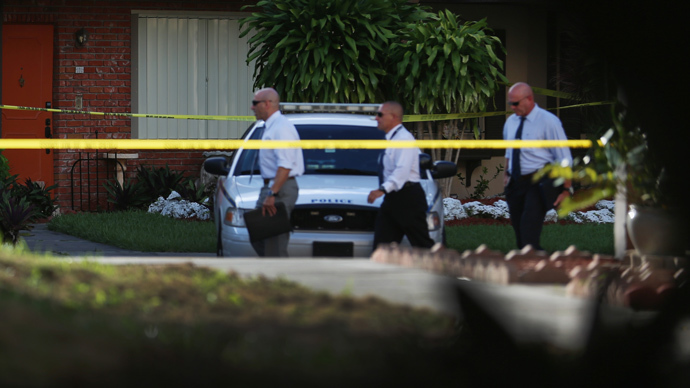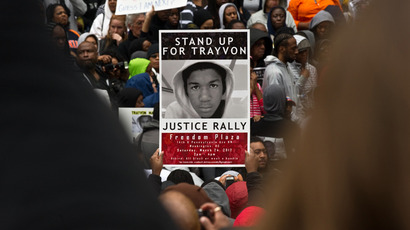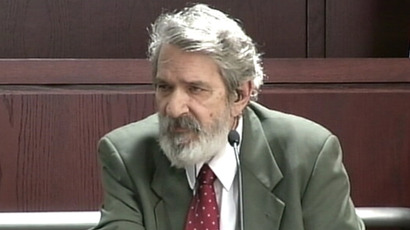'Stand Your Ground' law, ‘Bush Doctrine’ used to defend double homicide

A Florida man accused of killing two men and seriously injuring a third has invoked the state’s controversial “stand your ground” law as well as the “Bush Doctrine,” which provided legal justification for the war in Iraq, for his defense.
William T. Woodward, 44, allegedly confronted his neighbors during a Labor Day picnic in Titusville, Florida.
Police had responded to the neighborhood multiple times in the past, reportedly because of an ongoing feud between the two parties. Officials say they previously offered to mediate the dispute, but when officers arrived at the scene on Tuesday they found that Gary Lee Hembree, Roger Picior, and Bruce Timothy Blake had all been shot.
Hembree and Picior were mortally wounded, but Blake survived despite being shot at least 11 times. Blake later told Wesh.com that he needed to call the police dozens of times on Woodward, who is a combat veteran.
“I feel about as good as I can with 16 bullet holes in me,” he said. “Who in the world think they are going to walk outside to smoke a cigarette and get shot 11 times from somebody a month earlier who was your friend.”
Woodward’s attorneys maintain their client was threatened, with the shooting victims calling him names and saying they were going to “get him.” Florida’s “stand your ground” law, which has faced tough public scrutiny after the George Zimmerman trial made international headlines, states that gun owners do not have a legal responsibility to retreat when faced with an “imminent” threat.
“I think legally that term has sort of been evolving especially given changes of our government’s definition of ‘imminent,’” attorney Robert Berry, who is representing Woodward, told Florida Today. “It’s become more expansive than someone putting a gun to your head. It’s things that could become, you know, an imminent threat.”
Woodward is charged with two counts of first-degree felony murder and attempted first-degree felony murder. The charges imply premeditation, which could be a difficult challenge for the defense to overcome.
“It just got out of hand,” neighbor Joann Roy told First Coast News. “I can’t understand the problem that they had that led up to a shooting.”
Assistant State Attorney Wayne Holmes said the prosecution will rest on the facts around the case, as the legal definition surrounding the “stand your ground” law remains murky.
“As with many things in not only the law, but life in general, you’ve got to have a certain amount of flexibility,” he said. “There’s a certain amount of ability to take the facts, whatever they may be, and apply it to that law. Sometimes it fits perfectly; sometimes it doesn’t fit at all.”
Defense attorneys also cited the “Bush Doctrine” when asking the judge to dismiss all charges. The foreign policy document was expanded to explain US military action in Iraq, which the Bush administration claimed was a necessary and “pre-emptive” war.














